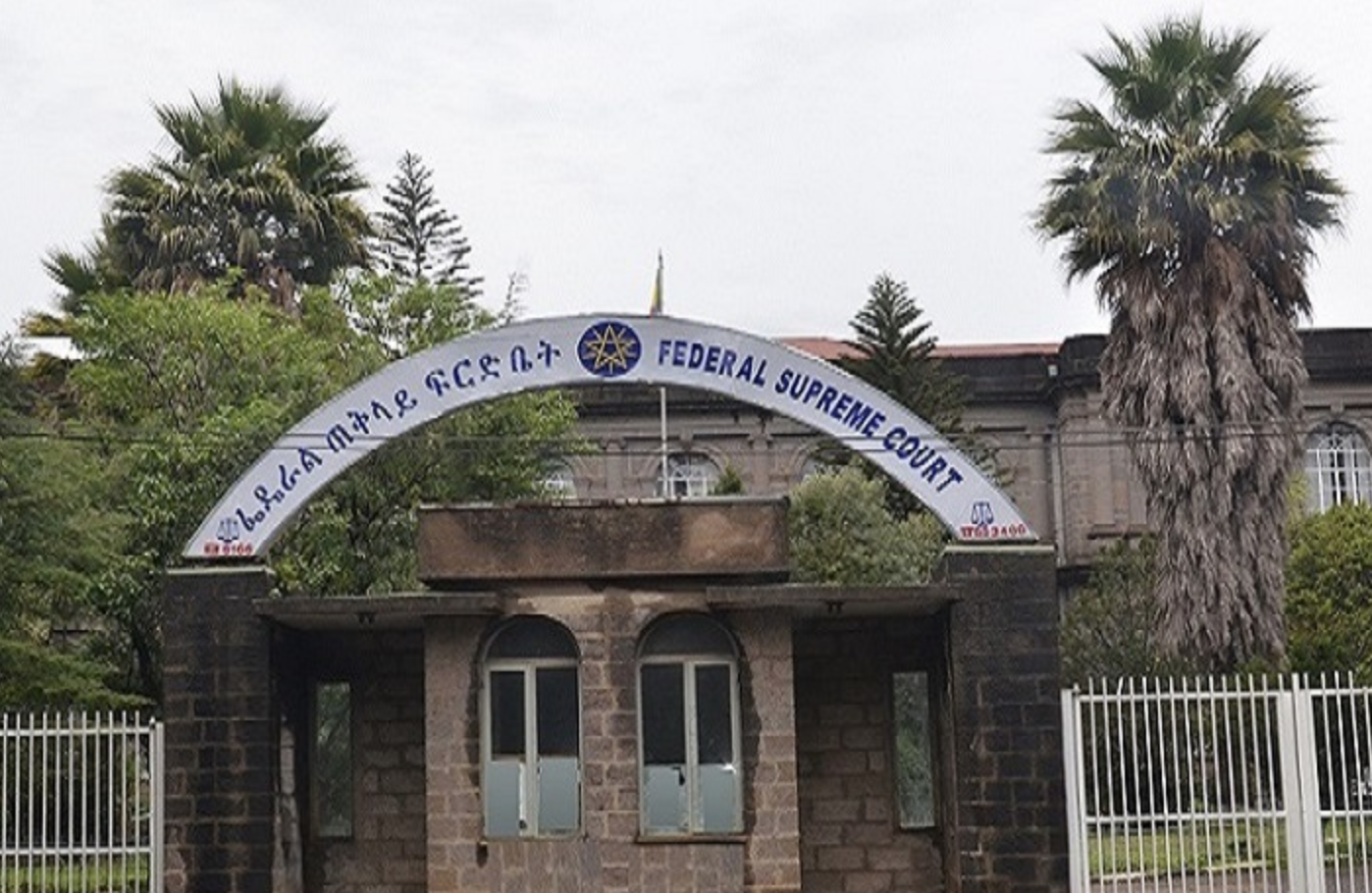
Advertorials | Apr 10,2023
Jan 13 , 2024.
In the turbulent corridors of Ethiopia's industrial sector, Melaku Alebel, the minister of Industry, ought to find himself in an unenviable position. Recent months have seen a disheartening trend where factories, from beverage bottlers to diaper producers, food packaging, and auto assembly, are closing their doors or scaling their operations down to an inconsequential level.
This downturn, a clear reflection of the struggles businesses face to remain viable, is not just an economic setback. It is also a brutal blow to the livelihoods of thousands who have been part of these industrial establishments, some for as long as a quarter of a century. For anyone at the helm of the economic policy wheel, these mishaps should cause too many sleepless nights.
Under Melaku's watch, the manufacturing sector is relatively diminutive in the grand scheme of the economy. Historically contributing no more than six percent to the GDP, its share plummeted to 4.6pc last year, a decline from 5.9pc in 2019. This contraction must weigh heavily on the Minister, particularly as his department's latest strategy, embodied in the slogan "Let Ethiopia Produce!", seems more aspirational than practical. His ambition to promote a once-tested and failed industrial policy of import substitution could be understandable to the extent that it is a policy born of desperation.
The irony lies in the dependence of Ethiopia's manufacturing on imported inputs, which account for 62pc of their needs. Even industries like brewing, largely reliant on domestic resources, are not immune, needing imported chemicals for bottle washing. The scarcity of foreign currency, a seemingly fundamental issue impeding businesses from importing essential inputs, has led to reduced operations and labour cuts.
The response by many in the administration of Prime Minister Abiy Ahmed (PhD), primarily focused on resolving the forex crisis, appears narrow in the absence of a broader macroeconomic strategy.
The economic landscape, overwhelmed by speculators, reflects a broader sense of insecurity and uncertainty. Such a climate of apprehensions over governance, regulatory and security unpredictability undermines not only business operations but also the realisation of macroeconomic objectives like manufacturing sector expansion, enhanced agricultural productivity and job creation in mass.
This factor collectively dampens the enthusiasm of both local entrepreneurs and foreign investors. The perceived unpredictability of the market, exacerbated by bureaucratic red tape and policy inconsistencies, further complicates the investment climate.
Prime Minister Abiy's administration faces the obstacles - largely self-induced- of transitioning from a regulatory role to one that enables and nurtures the entrepreneurial spirit. The now-defunct "Ease-of-Doing Business Index", developed by World Bank economists, once ranked Ethiopia 159th out of 190 countries, uncovering the need for reforms on several fronts. While criticised for its inherent biases and discontinued in 2020, the index still provides valuable insights into creating a conducive business environment that encourages individuals and companies to generate wealth and jobs.
Ironically, casual observations of the regulatory ecosystem reveal significant impediments.
Properties registration and administration, marred by conflicting laws and frequent service suspensions, epitomise these regulatory bottlenecks. Despite modest digitisation efforts, the process of starting a business remains encumbered by unchanged requirements and tax clearance procedures. Introducing new construction standards in the capital, including stipulations on building colours and billboards, adds layers to an already cumbersome process.
The current regulatory environment, perceived as restrictive by both local and foreign investors, discourages investment and stifles economic growth. It puts the private sector under the irrational whims of the bureaucrats. Addressing these issues may require simplifying licensing procedures and embedding business enablement in policy.
Beyond these regulatory hurdles, the economic upheavals are deeply entrenched in the unravelling of the political-economic context. The security issues stemming from political fallout, the logistical nightmare of transporting supplies and goods in the value chain, and the suffocating climate of uncertainty significantly impact economic actors' behaviour. It would not be without a reason the thriving real estate markets in Turkey and Dubai are targeting Ethiopians of wealth, who would want to bank their assets elsewhere for the stormy seasons.
The foreign exchange crunch, a symptom of deeper economic malaise, has become a source of frustration across sectors. Addressing it requires more than temporary fixes; it demands a comprehensive approach encompassing political stability and policy foresight. Sadly, listening to senior members of the administration speak about home-grown economic reforms and the 10-year economic growth plan often reveals policymakers' uncertainty and hesitance buried in their tones.
Long shackled by a centralised economic paradigm, now standing at a crossroads, Ethiopia's leaders must contemplate an indispensable shift towards liberalisation, particularly in the foreign exchange regime. This appears to be an inevitable road, without which they can only see the economy tank on its own weight. The move towards further liberalising the economy, a departure from a half-century tradition of state-controlled resource allocations, notably in foreign currency, could mark a seminal moment in the economic course. Coupled with the eventual opening of the capital account, these measures should be seen not just as radical shifts in policies, but as a recharting of the country's course.
Yet, the voyage towards these "calm waters" of economic stability cannot be reached before sailing the high seas of tides and waves. The threads of elites' bargains and negotiated settlements on the country's cleavages should emerge as crucial for the country to digest the austere measures of economic reform. Its leaders would instead steer the country away from the militaristic posturing of society to redirect the budget from defence to deficit reduction.
The apprehensions about the liberalisation of the foreign exchange regime should be understandable, notably fears of precipitating capital flight. A robust foreign currency reserve – to the tune of 16 billion dollars – could be in demand to backstop the outflows.
The role of international goodwill, manifested through bilateral and multilateral partnerships, will be vital. Ethiopia's ability to draw on such support hinges on its leaders' capacity to engage constructively and in good faith to resolve domestic political crises. Ethiopia could potentially unlock substantial foreign assistance - perhaps covering one-fourth of the required forex - provided its leaders can ponder on their constitutional duty to protect and commitments to responsible governance and economic stewardship.
PUBLISHED ON
Jan 13,2024 [ VOL
24 , NO
1237]

Advertorials | Apr 10,2023

Radar | Apr 01,2024

Commentaries | Aug 16,2020

Verbatim | Nov 14,2020

Radar | Oct 02,2021

Covid-19 | Apr 01,2020

Viewpoints | Sep 04,2021

Viewpoints | Apr 02,2022

Radar | Jul 28,2024

Fortune News | Dec 13,2021

My Opinion | 131548 Views | Aug 14,2021

My Opinion | 127903 Views | Aug 21,2021

My Opinion | 125879 Views | Sep 10,2021

My Opinion | 123509 Views | Aug 07,2021

Dec 22 , 2024 . By TIZITA SHEWAFERAW
Charged with transforming colossal state-owned enterprises into modern and competitiv...

Aug 18 , 2024 . By AKSAH ITALO
Although predictable Yonas Zerihun's job in the ride-hailing service is not immune to...

Jul 28 , 2024 . By TIZITA SHEWAFERAW
Unhabitual, perhaps too many, Samuel Gebreyohannes, 38, used to occasionally enjoy a couple of beers at breakfast. However, he recently swit...

Jul 13 , 2024 . By AKSAH ITALO
Investors who rely on tractors, trucks, and field vehicles for commuting, transporting commodities, and f...

Jun 29 , 2025
Addis Abeba's first rains have coincided with a sweeping rise in private school tuition, prompting the city's education...

Jun 29 , 2025 . By BEZAWIT HULUAGER
Central Bank Governor Mamo Mihretu claimed a bold reconfiguration of monetary policy...

Jun 29 , 2025 . By BEZAWIT HULUAGER
The federal government is betting on a sweeping overhaul of the driver licensing regi...

Jun 29 , 2025 . By NAHOM AYELE
Gadaa Bank has listed 1.2 million shares on the Ethiopian Securities Exchange (ESX),...